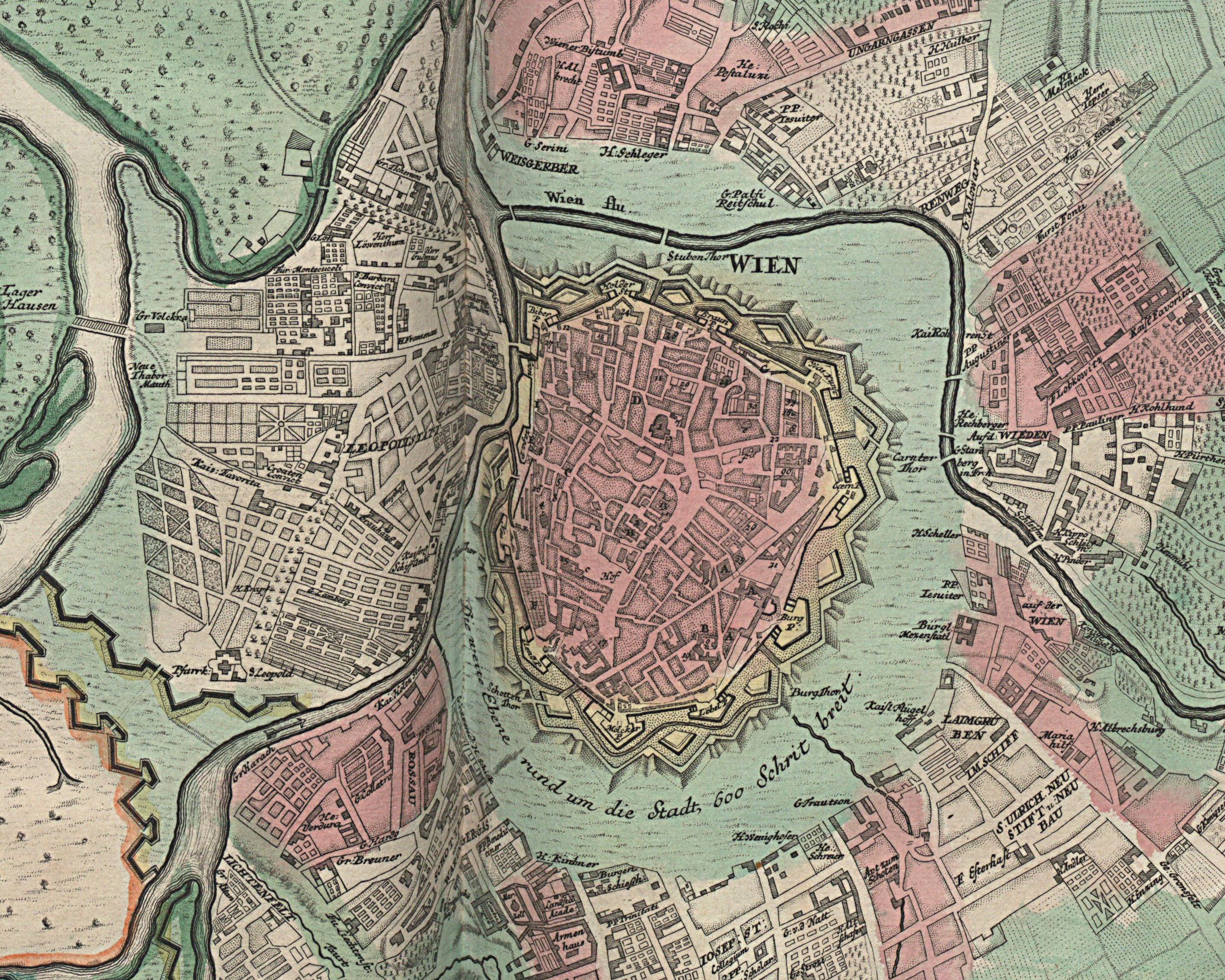|
xthetenth posted:Air attack sunk five destroyers of 39 (two more sunk by E-boats, one by mines and one by submarine) between 29 May and 1 June, and considering that the ships would be doing things that would require being stationary for relatively long stretches of time, that doesn't bear much promise for dealing with the response to Sealion coming in with harder targets, all targets under steam, a larger force and a smaller window of opportunity in which to strike. You are still talking about a small subset of the Luftwaffe being involved in that battle though, one that is tired after 2 weeks of continuous combat, untrained for anti-shipping warfare, and opposed by RAF fighter cover. Sealion would have been very different.
|
|
|
|

|
| # ? May 16, 2024 06:34 |
|
xthetenth posted:Air attack sunk five destroyers of 39 (two more sunk by E-boats, one by mines and one by submarine) between 29 May and 1 June, and considering that the ships would be doing things that would require being stationary for relatively long stretches of time, that doesn't bear much promise for dealing with the response to Sealion coming in with harder targets, all targets under steam, a larger force and a smaller window of opportunity in which to strike. Um...ok? I'm not really sure why you're focusing solely on destroyers at Dunkirk nor how that can be extrapolated to attacking capital ships without air cover, but alright. As a counterpoint, the Luftwaffe sank somewhere between 60 and 80 ships in the Channel and North Sea during the June/July 1940 timeframe, all while being very effectively contested by the RAF.
|
|
|
|
FAUXTON posted:Yeah, the B-36 is that big bastard allll the way in the back right, you can see the intakes on the leading edge of the wing. Phones are terrible at panoramic shots still. That's pretty cool museum. Seeing a B-36 next to a BUFF really puts it in perspective. Kemper Boyd posted:In the end, strategic bombing never really paid off. I would disagree with this. Just because the theories of Douhet or Mitchell didn't come true doesn't mean that strategic bombing wasn't worth the effort.
|
|
|
|
FAUXTON posted:I wonder what the hell the whole 1940 air campaign against Britain was about, then? Just a big attempt to knock out Britain's ability to project force onto the continent? If the plan was never seriously including taking the island then it was a possible (before they joined in) US staging area for bombing missions into Germany/France. He seems to have expected a negotiated peace. I guess he figured at the very least he could keep them off the continent. After all, he was willing to open a second front by invading the Soviet Union, even though it was clear by then that Churchill wasn't going away. But yea, you have to wonder what all the men who were killed and wounded would have thought of such planning.
|
|
|
|
iyaayas01 posted:I would disagree with this. Just because the theories of Douhet or Mitchell didn't come true doesn't mean that strategic bombing wasn't worth the effort. It's fairly late here so I'll do a brief answer: The strategic bombing campaign did have an effect on the outcome of the war, namely that the Nazis ended up spending quite a bit of resources on defending their airspace without success. However, Harris was really drat stubborn about executing the strategic bomber campaign to demoralize and to break the will of the German population, which lead to the bomber arm pretty much doing it's own thing even when there was legitimate reasons to shift targets. For instance, the synthetic fuel plants of Germany were hit only in the latter half of the war.
|
|
|
|
LordSaturn posted:I feel like this shouldn't get lost in the WWIIchat.
|
|
|
|
Kemper Boyd posted:Hitler was always kind of baffled about the Brits not accepting his New Order. Hitler, after all, was sort of an anglophile and originally wanted to ally with the UK. I'd say that eventually strategic bombing paid off as a viable strategy to win a war, it was just that it took until 1991 for that to really be a thing that could happen which doesn't do a whole lot for the 70+ years it was first promised to work.
|
|
|
|
WEEDLORDBONERHEGEL posted:That describes literally anything I post, at any moment of any day, in this thread. Give in and study the superior time period 
|
|
|
|
Unprompted, I'd like to recommend an article on the very painfully understudied topic of African wars; this link presents an excellent overview of continuity of indigenous tactical / strategic thought between cca 16th century Sierra Leone and the 20th century conflict: https://www.dropbox.com/s/iy22kn59hos4j7r/werk2.1.pdf Dunno how many people are interested in this marginal matter, but I've been quite immersed in non-European discourses on war, and I think it's worth reading for co-establihing a global baseline of military history.
|
|
|
|
Raskolnikov38 posted:Hush, or you'll summon FPÖ goon Riso to the thread.
|
|
|
|
Arquinsiel posted:This.... explains a lot. Fukkan Riso, haven't seen him around in a while. He used to poo poo up a random warhammer IRC channel with right wing insanity for... some reason. I never found out if he actually played or not. Riso's been active in the Eastern Europe thread, as one of the more sane posters, I think.
|
|
|
|
bewbies posted:Um...ok? I'm not really sure why you're focusing solely on destroyers at Dunkirk nor how that can be extrapolated to attacking capital ships without air cover, but alright. I'm looking at the RN records during those months and I'm seeing 4 destroyers sunk by aircraft (3 at Dunkirk), and 12 auxiliary ships that max out at 550t. It'd probably settle the issue better if anybody had information on luftwaffe anti-ship tactics, but I'm not seeing any evidence of them being effective or not. At the very least, should the RN had sortied in force, they would have more fighter support dedicated than the poor tugs that were actually sunk.
|
|
|
|
Those river barges would have been sunk by a destroyer sailing by let alone it being fired upon.
|
|
|
|
 I can't quite place the plane at the bottom left corner, the black one in the ceiling or the fighter closest to the camera, left side (not the hanging Saber). Now I'm really kicking myself for not looking for aviation museums when I was in England.  steinrokkan posted:Unprompted, I'd like to recommend an article on the very painfully understudied topic of African wars; this link presents an excellent overview of continuity of indigenous tactical / strategic thought between cca 16th century Sierra Leone and the 20th century conflict: Thanks a lot for this.
|
|
|
|
From left to right: F-111 with wings swept, U-2 (strung from ceiling), a Grumman Albatross, something I can't identify right behind it (possibly a B-58?), an F-105, B-17, B-52, F-4, B-36, P-80 hanging above to the left), F-86 (to the right) and an A-20.
|
|
|
|
steinrokkan posted:Unprompted, I'd like to recommend an article on the very painfully understudied topic of African wars; this link presents an excellent overview of continuity of indigenous tactical / strategic thought between cca 16th century Sierra Leone and the 20th century conflict: This was an interesting paper, but I'm not sure I completely understood it. Either because of the author's style of writing, which doesn't seem very clear to me, and/or a lack of knowledge of the wars described, I didn't quite catch his argument. It seems like he was saying the 'primitive' magic came about as Western powers stamped down on guerrilla fighting techniques (such as wearing camouflage and hiding towns in the forests), which re-emerged over time as JuJu as people became more desperate to help themselves without being to do the actual techniques; the people remembered that one slaver was well-known for being able to travel quickly, but forgot that this was because he was the only one able to use the roads thanks to being heavily armed, so attributed it to magic once the next cycle of wars started a generation or two later. Did I catch this correctly?
|
|
|
|
steinrokkan posted:Riso's been active in the Eastern Europe thread, as one of the more sane posters, I think. He's also in the German thread making  posts. posts.HEY GAL posted:That describes literally anything I post, at any moment of any day, in this thread. I appreciate your posts, I just don't have anything meaningful to say. Here's some stuff that you'll appreciate.  https://fedora.phaidra.univie.ac.at/fedora/get/o:61604/bdef:Asset/view
|
|
|
|
Ghost of Mussolini posted:From left to right: F-111 with wings swept, U-2 (strung from ceiling), a Grumman Albatross, something I can't identify right behind it (possibly a B-58?), an F-105, B-17, B-52, F-4, B-36, P-80 hanging above to the left), F-86 (to the right) and an A-20. F-111, U-2, Albatross, B-58, You can see the tip of the tail of an F-84 behind the F-86, and aaaallllll the way in the back on the floor that silvery plane is a B-25. There's a second B-25 (in green, next to it, whose cockpit you can just barely see under the wing/prop of the B-36. I want to say the Goblin's over there between the A-26 and the B-36, too. You missed this one, though  : :  e:  FAUXTON fucked around with this message at 12:17 on Apr 8, 2014 |
|
|
|
I love it. Yeah guys, trench warfare totally started with the ACW. Nope, no trenches before that. At all.
|
|
|
|
ArchangeI posted:I love it. Yeah guys, trench warfare totally started with the ACW. Nope, no trenches before that. At all.
|
|
|
|
HEY GAL posted:That describes literally anything I post, at any moment of any day, in this thread. I love reading your stuff, I just don't really know anything about it to post in response. Fortifications are my favorite part of the period.
|
|
|
|
Slim Jim Pickens posted:I'm looking at the RN records during those months and I'm seeing 4 destroyers sunk by aircraft (3 at Dunkirk), and 12 auxiliary ships that max out at 550t. It'd probably settle the issue better if anybody had information on luftwaffe anti-ship tactics, but I'm not seeing any evidence of them being effective or not. I'm sure that's correct for the RN, but most of what the LW targeted during Kanalkampf was merchant shipping. For reference's sake, most solid BoB books discuss the LW's air campaign against channel shipping in some detail, Deighton's book and "Jagdwaffe" in particular. ArchangeI posted:I love it. Yeah guys, trench warfare totally started with the ACW. Nope, no trenches before that. At all. When did anyone say this?
|
|
|
|
bewbies posted:When did anyone say this? Perhaps not in this thread, and perhaps not recently, but it is a very widespread misconception.
|
|
|
|
I think these trenches that go from the left to right are assembly areas. If you look at the map, there's like 30m or so that the attackers have to cross, up into the blown up parts of the fortification. Pretty insane stuff if you use your imagination. Broken bricks and equipment, mud, rotting corpses everywhere, huge plumes of smoke from gunpowder and grenades that are thrown, lots of (subterranean) hand to hand combat. The movie Alatriste shows some scenes like that if I recall that right. The account of the siege is actually pretty intense. Lots of mining, counter mining, sorties and numerous assaults getting minced by canister shot and all that. So they slowly mined the defenders. The main target was to knock out the ravelin first. After that, they went to the bastions and the main wall. The overlooking artillery emplacement (Kavalier) was knocked out by the turks who managed to get cannons into the trenches next to the other bastion by end of July. In the end, 8m of the inner wall was blown up and fell to the outside, creating an even worse obstacle for the attackers. That stretch was filled with cheval de frise, wooden stakes and debris. The turks set out to mine that last part, but right in time, the reinforcements arrived and bit them in the arse. Why hasn't anyone made a movie about this yet? A quick test for the aspiring siege engineer, you need to spot the best location for an attack (Hint: a stretch between 2 bastions that is too wide for canister shot to be effective, where the ravelin looks slightly misplaced):  How artillery must have evolved. When Napoleon came, the walls were shot to pieces in short time. Power Khan fucked around with this message at 14:20 on Apr 8, 2014 |
|
|
|
I can't imagine trench warfare being considered anything remotely modern, unless you consider modern as being post-Marian or consider trench warfare to be specifically the example put forth by Blackadder. The Roman army did a lot of battlefield engineering when it came to fortifications (ex. Caesar's army at Alesia), and I bet hiding behind manmade earthworks predates even that.
|
|
|
|
The turks used battlefield fortification extensively. The janissaries usually built the sultan's redoubt (Sultansschanze), where they'd receive the enemy after the first lines of the turks gave way in a feint retreat. I really wonder how they managed to conquer so much territory. When reading about them, it seems that most of their troops were of inferior quality (great artillery and janissary core troops though). In some books I read that most of their infantry didn't even wear armor. Compare that to the equipment of Imperial infantry. Their leaders used to say that their men have "sharp eyes and long legs", meaning that they were quick to desert when faced with real opposition. Though they managed to raise and support HUGE armies. Lots of cavalrymen, lots of light cavalry to scout and raid the surroundings. Power Khan fucked around with this message at 15:07 on Apr 8, 2014 |
|
|
|
You'd think that documents on tank production would be dry and tedious, but they're really not. I just finished going though 24 pages of Ginzburg being a massive weeping baby about his precious T-50 getting cancelled. Good times. Edit: what happens when you use too much jargon and slang in your reports: "Brigade is out of battle: four secondaries and a crazy in 9324-G, one secondary needs fixing of two stomachs and eyes, an upcoming one needs to fix its heart." "Stop this nonsense. Take this report back, give it to Urvanov. Do not report like this anymore. Tomorrow, April 25th, 1942, be at the telegraph with a proper report ready." Ensign Expendable fucked around with this message at 23:34 on Apr 8, 2014 |
|
|
|
Ensign Expendable posted:Edit: what happens when you use too much jargon and slang in your reports: JaucheCharly posted:Why hasn't anyone made a movie about this yet? quote:A quick test for the aspiring siege engineer, you need to spot the best location for an attack (Hint: a stretch between 2 bastions that is too wide for canister shot to be effective, where the ravelin looks slightly misplaced): The real test, of course, is if you're looking at it from the ground and not from a map, and the spyglass is still a few years in the future. Thanks for the book, incidentally. Here's images from an unpublished artillery manual from the late 16th century. http://bibliodyssey.blogspot.com/2011/07/artillery-book.html The book itself is available here: http://dfg-viewer.de/v3/?set%5Bmets%5D=http%3A%2F%2Fdaten.digitale-sammlungen.de%2F~db%2Fmets%2Fbsb00052357_mets.xml Edit: It goes through steps of the loading and firing process (about halfway through the book). One of them is: take your calipers and see if any of the shot you have matches the bore of the piece you are loading. HEY GUNS fucked around with this message at 00:37 on Apr 9, 2014 |
|
|
|
steinrokkan posted:Unprompted, I'd like to recommend an article on the very painfully understudied topic of African wars; this link presents an excellent overview of continuity of indigenous tactical / strategic thought between cca 16th century Sierra Leone and the 20th century conflict: Great article, thank you for sharing! Slaan posted:This was an interesting paper, but I'm not sure I completely understood it. Either because of the author's style of writing, which doesn't seem very clear to me, and/or a lack of knowledge of the wars described, I didn't quite catch his argument. It seems like he was saying the 'primitive' magic came about as Western powers stamped down on guerrilla fighting techniques (such as wearing camouflage and hiding towns in the forests), which re-emerged over time as JuJu as people became more desperate to help themselves without being to do the actual techniques; the people remembered that one slaver was well-known for being able to travel quickly, but forgot that this was because he was the only one able to use the roads thanks to being heavily armed, so attributed it to magic once the next cycle of wars started a generation or two later. Did I catch this correctly? I think her main meaning is more that practices that were being depicted in Western media coverage of African wars in the 90s as a confused, jumbled and absurd return to tribal primitivism were actually being continuously practiced since developing in response to the incorporation of those communities into the slave trade. This coverage has the effect of making policymakers go "these guys are devolving into Mad Max- General Rambo, are you kidding me? We can't reason with these people and shouldn't bother trying to intervene, they're just too weird! I guess it really is the Dark Continent", ignoring what the people in question actually think of magic and the role it plays in their lives. There's no effort to actually understand. Not that i'm an expert in this subject whatsoever, but I think you're seeing a big separation between 'practical' methods of concealment (like hidden safehouses and knowledge of paths) and ritual knowledge that isn't really there for the people in question. Like in the story about Korombo the slaver, I don't know that people forgot what actually happened for some reason, but traits like being bulletproof and able to fly are descriptions of how powerful he was due to his temporal power. I would venture a guess that it's a way of answering the question "how did no one stop this rear end in a top hat?", especially in light of the description of him violating social standards to enslave people. Tying this back to HEGEL's good post about Early Modern German magic: would it be fair to say that magic practices are most widespread among people who aren't in control of their lives, as a way of gaining control? That would seem to make sense during the Thirty Years' War for example as much as the violent upheaval in Sierra Leone in the 90s.
|
|
|
|
Kellsterik posted:Tying this back to HEGEL's good post about Early Modern German magic: would it be fair to say that magic practices are most widespread among people who aren't in control of their lives, as a way of gaining control? That would seem to make sense during the Thirty Years' War for example as much as the violent upheaval in Sierra Leone in the 90s. On the other hand, you probably feel like you lack control of things in daily life in peacetime, as a peasant. People may be trying to gain control over things they actually have little control over, but except possibly for the World War I stuff I don't think it's because they feel any less in control than usual--their life is always going to involve being at the mercy of forces they can't command, just like ours is. I don't think they're turning from a non-magical way of life to magic in desperation, I think this is normal for them, and has been for almost everyone in the world.
|
|
|
|
HEY GAL posted:I don't think they're turning from a non-magical way of life to magic in desperation, I think this is normal for them, and has been for almost everyone in the world. Speaking as someone who minored in history and folklore, these sort of beliefs still exist, but their shapes changes with our culture changing so we're less likely to identify our own magic rituals today as magic rituals.
|
|
|
|
Kemper Boyd posted:Speaking as someone who minored in history and folklore, these sort of beliefs still exist, but their shapes changes with our culture changing so we're less likely to identify our own magic rituals today as magic rituals. "Percussive Maintenance" is legit though, that poo poo works.
|
|
|
|
The Fonz is a witch.
|
|
|
|
Is this so common in Ireland? We knock on wood 3 times to avert/ not invite evil. Like me being at work and saying "I really hope we don't have another drunk farmer mow down a headend with his tractor." Dunno why, but I do this mostly at work.
|
|
|
|
Arquinsiel posted:Eh... I dunno man, I've seen some pretty blatant stuff in my time but it's mostly some weird form of Irish Catholic voodoo. It's really hard not to laugh on an early morning bus into town, for example, when a couple of the people on it furiously bless themselves three times as fast as possible going past each church. I also enjoy not touching wood when a friend of mine suggests a hypothetical terrible situation, because it drives her nuts to think people aren't taking proper magical precautions. An old couple once blessed the cinema screen we were in just before the film was due to start, it was one of those exorcism movies from a few years ago. They also preyed along with the priest on screen, that was the best part. This was in the Savoy on O'Connell street.
|
|
|
|
Rabhadh posted:An old couple once blessed the cinema screen we were in just before the film was due to start, it was one of those exorcism movies from a few years ago. They also preyed along with the priest on screen, that was the best part. This was in the Savoy on O'Connell street. I hope you alerted the authorities.
|
|
|
|
steinrokkan posted:Unprompted, I'd like to recommend an article on the very painfully understudied topic of African wars; this link presents an excellent overview of continuity of indigenous tactical / strategic thought between cca 16th century Sierra Leone and the 20th century conflict: Kellsterik posted:I think her main meaning is more that practices that were being depicted in Western media coverage of African wars in the 90s as a confused, jumbled and absurd return to tribal primitivism were actually being continuously practiced since developing in response to the incorporation of those communities into the slave trade. I would, however, have to point out that the "European distinction between magic and modernity" (92) to which Shaw refers does not exist, as I hope I've demonstrated. It's the Enlightenment, not modern European thought in general, which attempted to draw this distinction. (For turn-of-the-20th-century Germans who saw occultism as the cutting-edge of the modern, see here.)
|
|
|
|
JaucheCharly posted:Is this so common in Ireland? It was Jupiter.... Rabhadh posted:An old couple once blessed the cinema screen we were in just before the film was due to start, it was one of those exorcism movies from a few years ago. They also preyed along with the priest on screen, that was the best part. This was in the Savoy on O'Connell street. Sometimes I really enjoy the crazy people that live here.
|
|
|
|
HEY GAL posted:I honestly don't think so. These beliefs have been documented in German and German-American culture from the 1500s up to (in the case of some elements of healing magic) the present day. Similar things have been documented from the beginning of the written word. While fighting in the Thirty Years' War or World War 1 would be incredibly stressful, living in Pennsylvania in the 1920s might not be. While we're on the subject of German-American magic, I have a question about a particular ritual. In my area (heavily German-Czech), the ritual is that if you kill a snake, you hang it on the fence to bring rain. I'm kind of curious about the origin of that one, and whether it's from Central Europe or was developed here in parched Texas. Have you come across anything like that before?
|
|
|
|

|
| # ? May 16, 2024 06:34 |
|
SpaceViking posted:While we're on the subject of German-American magic, I have a question about a particular ritual. In my area (heavily German-Czech), the ritual is that if you kill a snake, you hang it on the fence to bring rain. I'm kind of curious about the origin of that one, and whether it's from Central Europe or was developed here in parched Texas. Have you come across anything like that before? I've heard of that before, I don't know of anyone that's actually done it. Now I'm kinda curious about immigrant superstitions, I bet I grew up with quite a bit of German-American magic and never recognized it as such, never something I've reflected upon. We definitely have a kitchen witch - http://en.wikipedia.org/wiki/Kitchen_witch
|
|
|





























